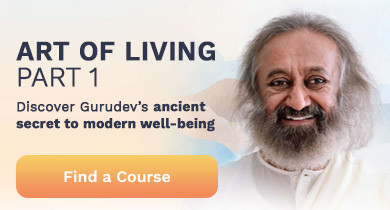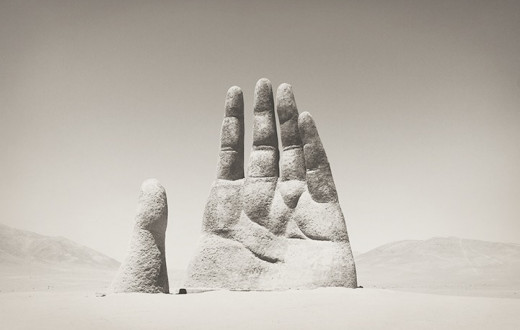Patanjali Yoga Sutras - Knowledge Sheet 8
Contd. from knowledge sheet 7
The moment is free, fresh and full. Being here this moment totally is abhyasa.
The mind might try to go to the past, to smruti, or may try to go off to sleep and it can try to bring some logic and justification or some knowledge or some fantasies. Just knowing that again it is getting into the five vruttis, without aversion or craving, come back to the center, to the seer. This is abhyasa.
Sa tu dirgha kala nairantarya satkara sevito drudha bhumihi
“This becomes firmly grounded or firmly established in you when you attend to it for a long time, without interruption and with devotion.”
- Patanjali Yoga Sutra #14
This effort to be still, to be steady is practice. Practice is the stability factor, which retains you in that moment and that is the purpose of the practice. And how can this be achieved? Sa tu dīrgha kāla - it takes a long time. Nairantarya - without a care. Satkāra sevita - with honor and respect. Receiving it and practicing it with honor and respect. Dhrudabhūmi - then it becomes firmly established.
Anything in life that is of firm value takes some time to get cultured. You go to a gym, you need a coach there. Body building does not happen overnight. Muscles will not grow. It takes quite some time. The body has its requirement of time for its growth. Similarly, the mind needs even more time for its growth. If you want to memorize something, it takes some time to memorize it. In the same way, any practice takes time. It need not be too long a time, but sufficiently long. And how? Without a gap. What we usually do is that we learn something and leave it after sometime and we start again. If we are little lazy and we do not do it, then the connection is broken and it does not happen. Without a gap, constant practice is essential. If you go to a gym for a couple of days and then leave the practice and then you go again the next month for a couple of days, nothing will happen. Due to lack of consistency, you do not learn any art.
Abhyāsa is something done with gratitude, gratefulness, honor and respect
Some say, “Oh! I have to do it” and do the same thing unenthusiastically. That is not abhyāsa. Abhyāsa is something done with gratitude, gratefulness, honor and respect. This is something which we lack in our life. Even if you do something with honor and respect, it lasts only for a very short period. First day you sit for meditation, you feel wonderful because you are there and you do it with honor. Later you will say, “I have to meditate” and you sit and close your eyes and it does not have the same effect.
What is honor?
Have you ever thought about it? Honor is total attentiveness to the present moment, with a hint of gratefulness. If you honor the mountain it means that you are looking at the mountain with all your heart, all your mind. Without questioning or without debating in yourself, just honoring, being happy and grateful for what the mountain is.
Similarly, respect and honor every moment in your life. That is practice. You respect your own body and that is practice,;that is āsanas. Āsana is respecting your body every moment consciously. Respecting your breath and honoring your breath. That is prānāyāma and keeping it up over a period of time is important.
Any practice is a practice when it is done over a period of time without any gap, respectfully and honoring it every day. Then it becomes firmly established. Are you getting this point? It is a very vital thing.
Just notice if any day your meditation has become dull or is not to your satisfaction. See if you have kept up the continuity of practice. “Yes, I have been doing it every day. But it is still not good.” What is the problem? “I have not honored this mantra. I have not honored this time of sitting with myself. I am not honoring the life in me. So my meditation is going haywire.”
Honor this word (mantra) that the Master has given. This is so precious. Honoring the Master is honoring Master’s word. It has been told just in one sentence. If you do not have honor or respect for the master, the mediation will not work. Why? This is because the honor and respect brings up the consciousness and awareness in you that helps you focus in the moment. If you do not honor the Master, the Master will not lose anything. It is your own mind that is at a loss because it is unable to be in the moment totally, unable to dive deep into the source totally. Honoring the source of knowledge, honoring the Master, honoring the knowledge and honoring the receiver. This is practice.
A good sportsman will honor his coach. Due to his attentiveness and honor that he has for his coach he is able to move ahead in sports. Otherwise, if he keeps judging his coach and says, “Let me do whatever I want to do”, then what is the need of having a coach? Then the bond is broken there. Right? This is abhyāsa.
<< Dealing with Modulations of the Mind How to free your mind? >>
(This is part of a series of knowledge sheets based on Gurudev Sri Sri Ravi Shankar's commentaries on Patanjali Yoga Sutras.)





























